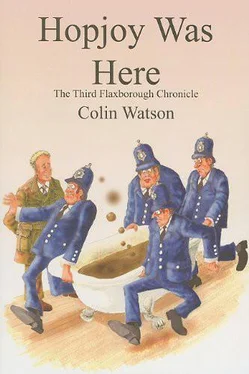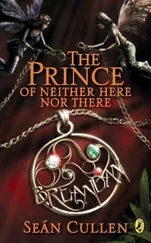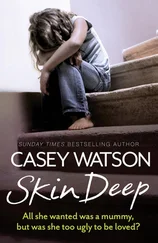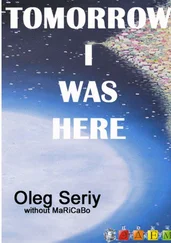“Merry Mumblesby,” said Purbright, reflectively. He opened the door.
Chapter Eleven
“Ingenious,” Ross said. He lifted the narrow rectangle of paper aloft with his pipe stem, held it in draped balance a moment, then withdrew the pipe sharply. The paper side-slipped twice and floated to rest on the table by Pumphrey’s elbow.
“Chubb was perfectly correct, you see. It is a betting slip.” Ross lengthened his face in mimicry. “ ‘We collect plenty of those, Mr Ross: they are merely symptoms of one of our little local weaknesses.’ Poor old Chubb. Tretnikov or Dzarbol would have three of him for breakfast. It isn’t innocent things like bus tickets or jam labels that pass unchallenged, but the obviously illegal ones. Betting slips? Of course they are taken for betting slips. What else could they be?”
Pumphrey peered at the paper earnestly, pulling his right ear lobe as if it put him in circuit with an electronic scanner. “Five shillings each way Needlework Hurst Park 4.30 Peter Piper” he read in an unpunctuated monotone.
“Pre-selected pseudonymic code: impossible to break. We needn’t waste time on it.” Ross held out his hand.
“Hold on a minute...” Pumphrey’s ear became tauter, redder. He muttered the message again to himself, then tapped the paper. “Needlework,” he said with emphasis and looked up.
“Name of the horse. I’ve checked. It’s running in the 4.30 all right.” Ross spoke mechanically. His attention was held by the bright, blood-flooded lobe of Pumphrey’s ear. He pictured the fearful rending tongs fashioned by that Cracow goldsmith whom fate, and an ungrateful party secretariat, had made their first victim; ‘unfeatured’ was the word that had been sardonically entered in his prison hospital record.
“Yes, but needlework...examine it association-wise. Needle...sewing...thimble...Thimble Bay.”
Interest glimmered in Ross’s eye, but only briefly. He shook his head. “Attractive, Harry, but just that fraction too obvious. No, what matters is that our friends’ main communication channels are being confirmed. It’s our immediate job to follow them. I’ll say this for F.7: he left some pretty positive leads.”
Pumphrey watched Ross place the betting slip in his briefcase. “I’ve sent a screening requisition on Anderson, of course.”
“Anderson? Oh, old dot and carry one. Good. Chubb’s fellows have him tabbed simply as a bookie’s runner, but I expected that. They probably think nuclear disarmament’s another name for the Oxford Movement.” Ross looked at the ivory and zirconium face of his wristwatch. “Just nice time,” he observed, “to pay Mrs Bernadette Croll a call before Farmer Croll homeward plods from his turnip patch or whatever. Coming along for the drive?”
Mumblesby was a hamlet of fourteen houses, a decrepit church and a ruined water mill. Its founders seemed to have tucked it quite deliberately into a green fold of the hills so that no one else should find it. Even today, when a main road to the coast ran within a quarter of a mile of its crumbling gables and rat-ridden thatch, Mumblesby still crouched in its valley unseen and unsought.
Speeding silently away from Mumblesby was a huge Bentley with a prow of gunmetal, whose pilot, Ross, remarked to his companion: “About another four minutes should do it.” But the car, painstakingly misdirected by humorous rustics, continued to sail through the high, greenish-white foam of cow parsley and past banks empurpled with campion before a signpost confirmed Pumphrey’s suspicion that they were about to re-enter the out-skirts of Flaxborough.
Ross grasped the situation immediately. He neither slacked pace nor changed direction. “We’ll stop at the first decent-sized stationers and get an ordnance survey map,” he announced. “You shouldn’t have taken those fellows literally, you know, Harry. I thought they were having you on.”
Pumphrey’s lean and diligent face swung round indignantly. It had been Ross who had taken charge of what he called the ‘peasant-parley’. “But look, I didn’t...” Ross quickly smiled and patted his arm. “My dear Harry, you’re far too easily drawn into categorical protestations; it doesn’t do, you know.”
At the newsagents where the required map was produced, Ross bought himself a fudge and roasted hazlenut bar. Pumphrey he treated to a sixpenny Yummie—honey-spun raisins in a cushion of chocolate praline, twice whipped for lightness.
Twenty minutes later, the Bentley rocked to a halt among roadside flowers, just clear of the narrow lane that pierced Mumblesby’s encircling groves of ash and elm. Ross examined the map. “I’ll go up to the farm; it’s about two hundred yards up there on the right, according to this. You stay here if you like, unless you want to nose around what there is of a village.”
Ross turned from the tree-vaulted lane, where the air was cool and green as old glass, on to a flint work road that ran straight between brown, sun-hardened fields. The earth was yielding the first clenched leaves of a potato crop, but still so few that no pattern of its sowing could be discerned. At the end of the track, the grey brick and funereal slate of a Victorian farmhouse defied the sun to soften their sour angularity. The older out-buildings, preserved when the original house was demolished and replaced, were roofed with red pantiles. They looked like robust, bibulous suitors attending upon a sick widow.
A few chickens pecked in the dust of the untidy yard, the only other occupant of which was a mired and malevolent-looking goose. Ross stepped carefully over the wheel ruts that still held in their depths the foetid residue of winter rains and seepage from the crew-yard, opened a wicket in the wire fence enclosing the house and its narrow strip of garden, and walked up to the front door.
His knock produced a hollow, unpromising reverberation, as if the house had sullenly murmured ‘go away’ in its sleep. He waited, knocked again, and listened. From somewhere fairly distant came the sound of music. The door remained shut. Ross reached for the big brown enamelled knob. It twisted loosely and without effect.
“Are you the killer?”
Ross spun round. The soft, rather bored voice had delivered its appalling question as flatly as if it had asked him for a match. “People usually come round to the back, you know. You could have waited here all day.”
“Am I the what ?”
The girl, unaware of the singularity of her accomplishment in having startled, of all people, Ross, looked him up and down. “No, you’re not Mr Rassmussen, are you? I think he’s a Dane or something. Anyway, he’s the killer from Gelding Marsh. Ours has a septic thumb.”
“I see.” Ross tried to imagine a rational connexion between thumbs and assassination. “You mean he’s a strangler?”
“Don’t be silly. You don’t strangle pigs.” There was no amusement in her voice.
“Naturally not. Nevertheless, I’m not your Mr Rassmussen. You are Mrs Croll, though, I take it.”
“That’s right. Why?”
“Do you think we might go inside? I’d like to talk to you.”
The girl subjected him again to doubtful, sulky scrutiny. This time, Ross returned her stare, appraising the lumpish yet indefinably provocative face, a throat fair-fleshed and smooth within the opening of a wine-red linen shirt that outlined narrow shoulders and gently understated the existence of breasts.
It was Mrs Croll’s gaze that turned aside first, but the gesture carried no suggestion of defeat or embarrassment. Nor, as she walked before him round the side of the house, did she seem to divine or care that his sensual preoccupation had been deepened by the anterior viewpoint and by the addition of movement. She was perfectly familiar with the standard of her charms—she could have defined it instantly as ‘34-23-38’—and her faith in their effect was as simple and absolute as if all these parts bore the tattoed warranty ‘as seen on TV’.
Читать дальше

![Fredrik Backman - Britt-Marie Was Here [Britt-Marie var här]](/books/61260/fredrik-backman-britt-marie-was-here-britt-thumb.webp)










